“Everything remains different” sang Herbert Grönemeyer in 1998, and “enough is too little or it will be as it was.” This could also be a credo for structural change. As we all know, it is a process in which change is the programme. In such a process, we should, can and must think in all directions and ways and always give room to new ideas.
One of these ideas is the concept for ecological urban redevelopment, which in Hoyerswerda has the working title “New City Concepts” and is based on the idea of the “EcoCity”. The concept is based on forward-looking projects from urban development research and goes far beyond the pure requirements of the energy and mobility transition. It is a holistic approach that links business, science and civil society and has the long-term goal of making the city not only green, CO2-neutral and self-sufficient by means of an efficient energy and material cycle, but also liveable and beautiful.
Solutions for participatory and sustainable urban development are being sought, researched and trialled worldwide. With the “New City Concepts” model project, the city of Hoyerswerda is participating in ecological urban development and has strong partners in LAUTECH GmbH, the Mitmachstadt initiative, the Leibniz Institute for Ecological Spatial Research, the United Nations University (UNU-Flores) in Dresden and the Technical University of Dresden. For example, the programme will focus on the cultivation of crops in urban areas, but there is also room for other visionary ideas.
In a first public workshop on 18 November 2023, citizens were invited to take part in the discourse. Those involved in the project first gave an insight into the project in keynote speeches. “The future of the city is cellular and self-determined. People play the key role, not any government or law,” said Prof Dr Ekhart Hahn, futurologist and founder of settlement ecology, explaining a crucial aspect of ecological urban development. The change is taking place very specifically in the neighbourhoods and districts. “It’s a renaissance of the local.”
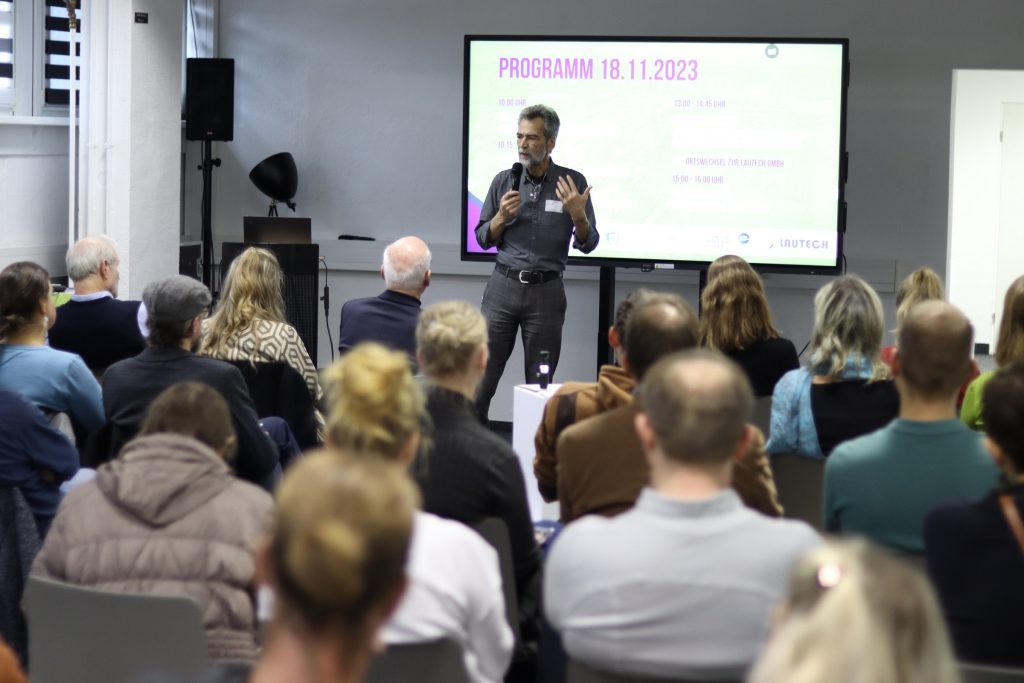
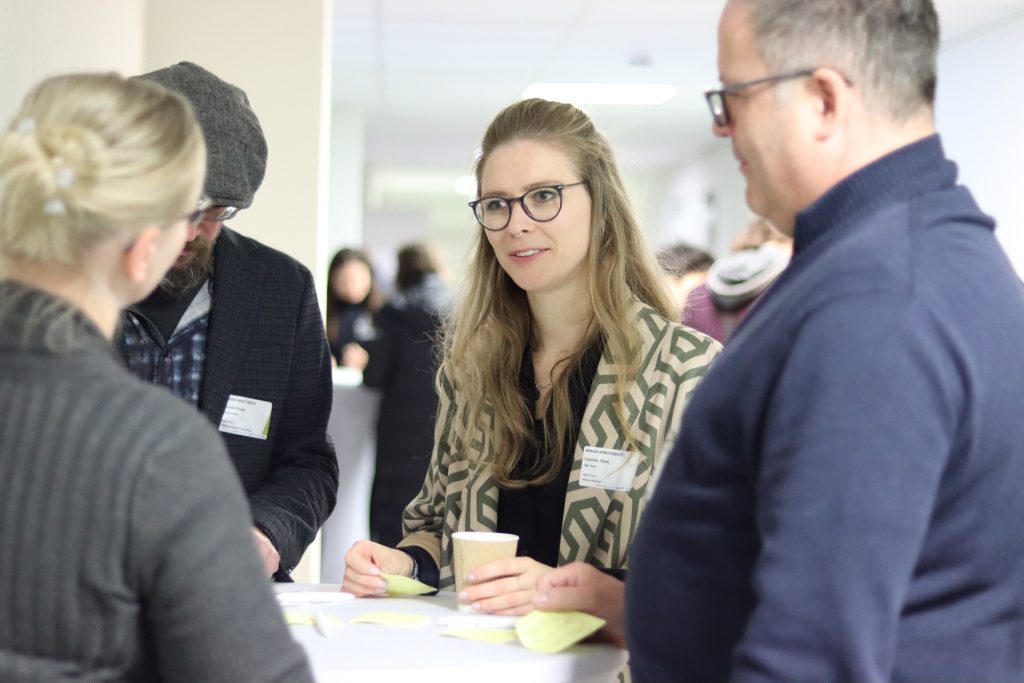
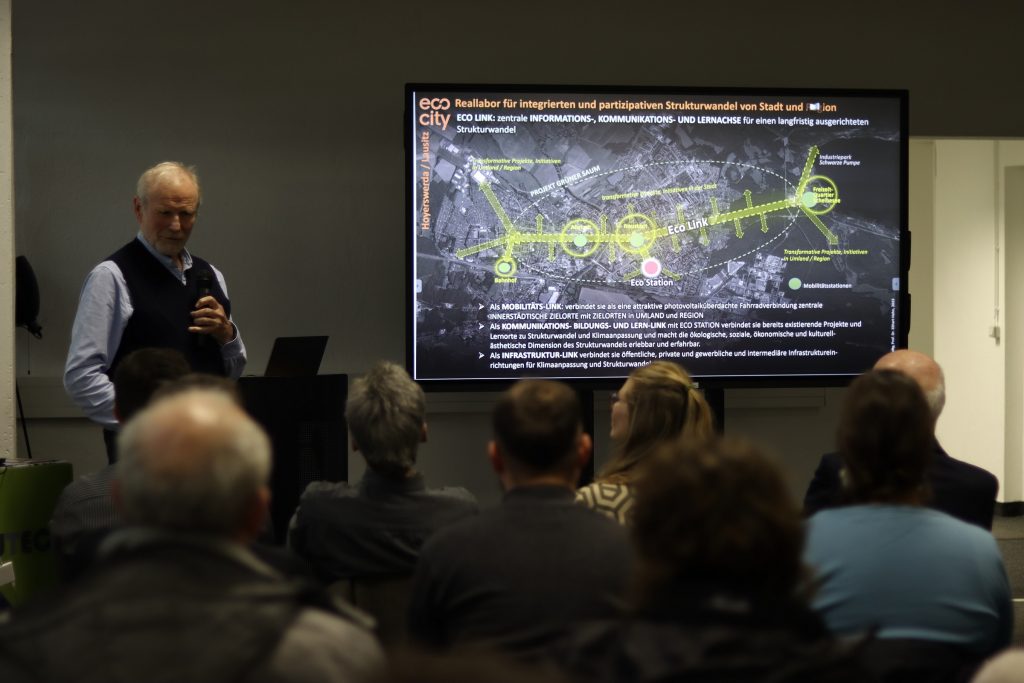
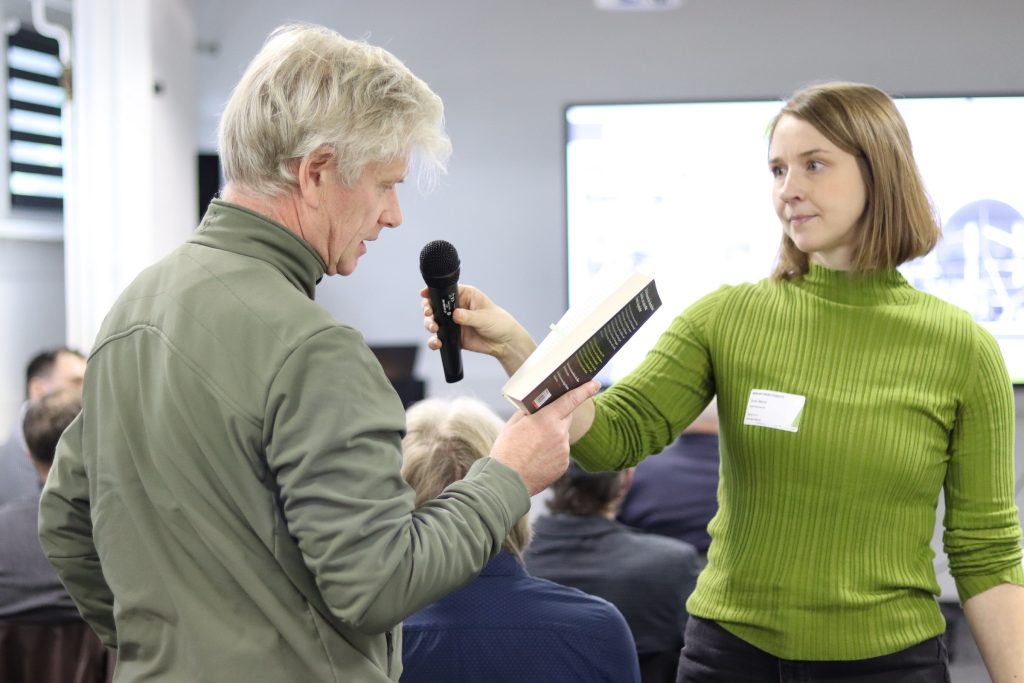
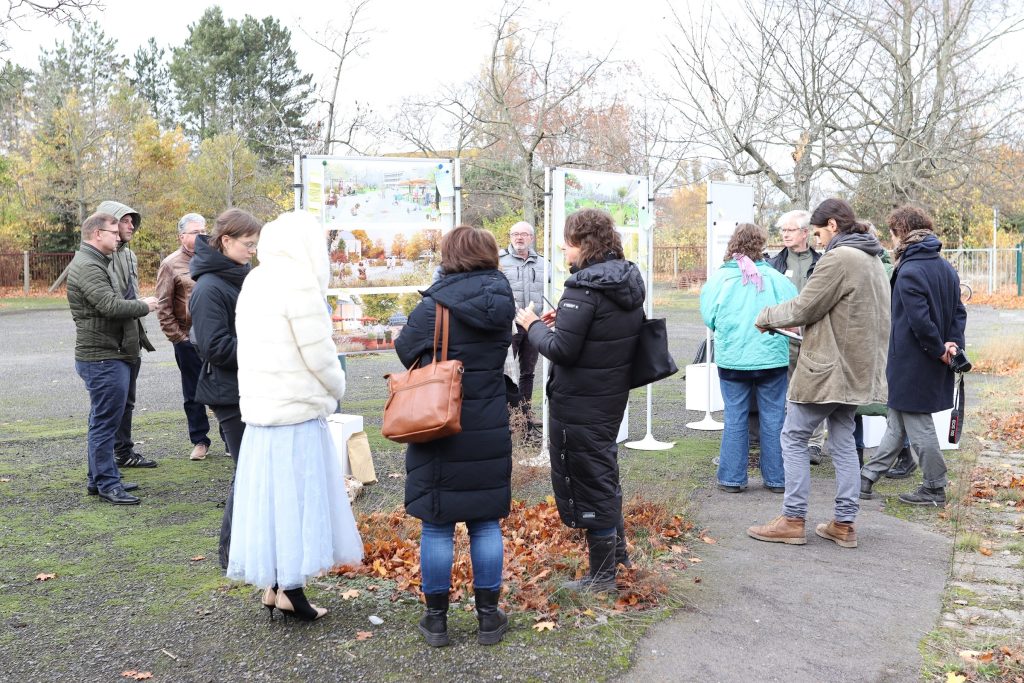
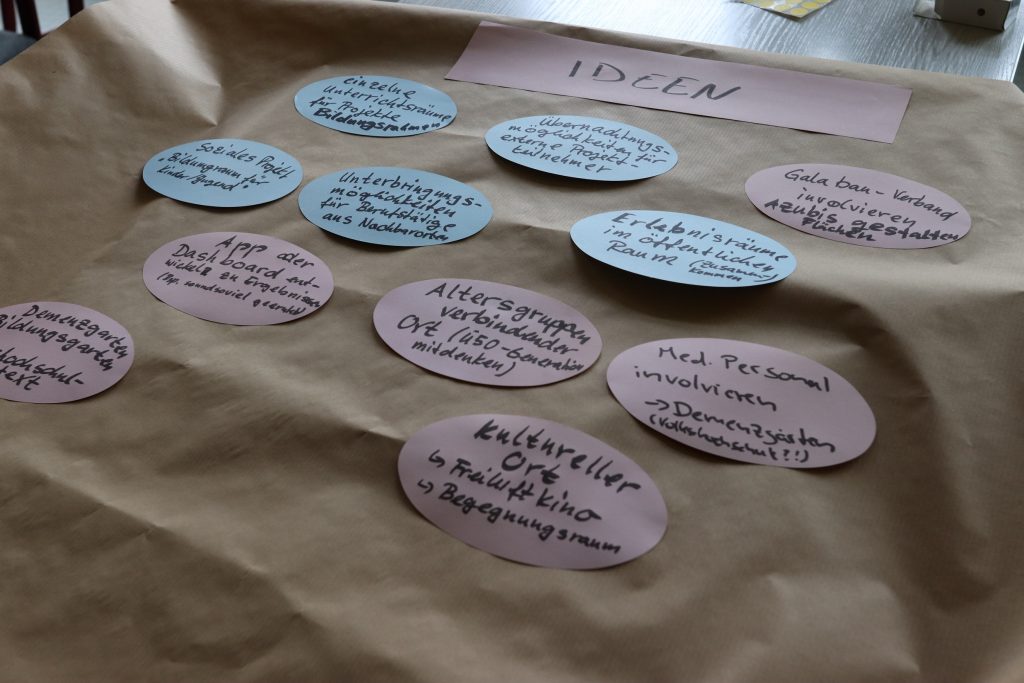
Terms such as “eco-station”, “eco-link” and “transformative infrastructure” were explained and a project outline was used to illustrate where and how such new approaches could be trialled in Hoyerswerda. As a first step, the project consortium identified the former school grounds in WK VI as a suitable starting point. With the school building, the planetarium and the open space, there is plenty of room to try things out. During a joint inspection with the workshop participants on that Saturday afternoon, creativity was called for, discussions were allowed and “brainstorming” was encouraged.
“As one of the central places in the memory of urban society, it is very important to us to fill the school with new life in the future in the spirit of a sustainable and community-orientated city, namely together with the citizens,” explains Sarah Stötzner, project manager from the city, an important premise of the project. In the first meeting on 18 November 2023, everyone agreed that education should continue to be anchored at the former school site. Suggestions were also made for a cultural venue that locals and visitors alike would enjoy visiting.
What happens now? “The results from the workshop will be saved and analysed by the project partners and further formats will be developed on this basis,” says Marco Bloch, project manager at the city administration.